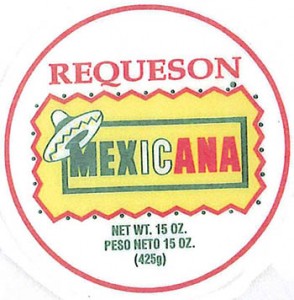
Roos Foods Inc. has agreed to plead guilty to a misdemeanor violation of the federal Food, Drug and Cosmetic Act (FDCA) in case brought by the U.S. Department of Justice stemming from a deadly 2014 Listeria outbreak. The company’s owners Ana A. Roos and Virginia Mejia, have also agreed to a proposed consent decree of permanent injunction.
The outbreak sickened eight people in two states. One of them died.
“We must work to ensure that the food we buy is free from dangerous bacteria and is safe to eat,” said Principal Deputy Assistant Attorney General Benjamin C. Mizer, head of the Justice Department’s Civil Division. “The Department of Justice will continue to work aggressively to combat and deter conduct leading to the distribution of adulterated food to consumers.”
Listeria causes severe illness and can be fatal. Symptoms of an infection, which can take up to 70 days to develop, include stiff neck, headache, muscle soreness and flu-like symptoms that are sometimes preceded by nausea, diarrhea and other gastrointestinal symptoms.
Those most at risk are young children, seniors, pregnant women and those with compromised immune systems. Among pregnant women, Listeria can cause miscarriage, stillbirth, premature delivery and infection in newborns.
Between August and December 2013, cheeses produced by Roos sickened eight people. Seven of the cases were in Maryland, the fatality was in California. Three of the victims were newborns, two mothers of the newborns were also sickened. All of the patients were Hispanic and all but one of them required hospitalization.
The contaminated cheeses included: Cuajada En Terron, Cuajada/Cuajadita Cacera, Cuajada Fresca, Queso Fresca Round and Queso Dura Viejo Hard Cheeses sold under the brand names Amigo, Mexicana, Santa Rosa De Lima, and Queso Fresco sold under the Anita brand name. All of them shopped at different locations of same grocery store chain, Mega Mart.
On March 11, 2014, the U.S. Food and Drug Administration (FDA) suspended operations at Roos after investigators inspected the facility and determined that food produced there had a reasonable probability of “causing serious adverse health consequences or death to humans.” During their inspection, investigators found roof water raining down onto the equipment in the cheese processing room, rusty equipment and standing water on the floor.
FDA investigators also collected environmental samples from the facility. A dozen of them were positive for Listeria monocytogenes. Of those, 11 were a genetic match to the outbreak strain.




